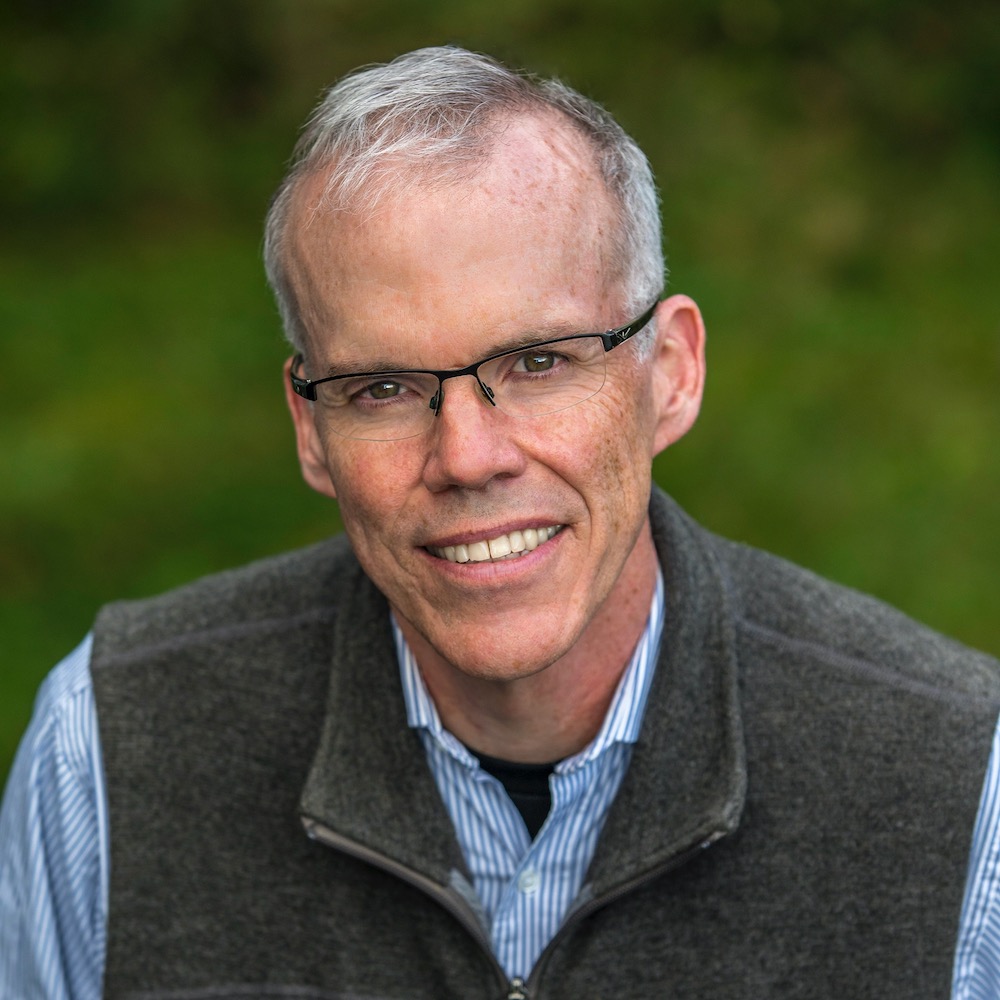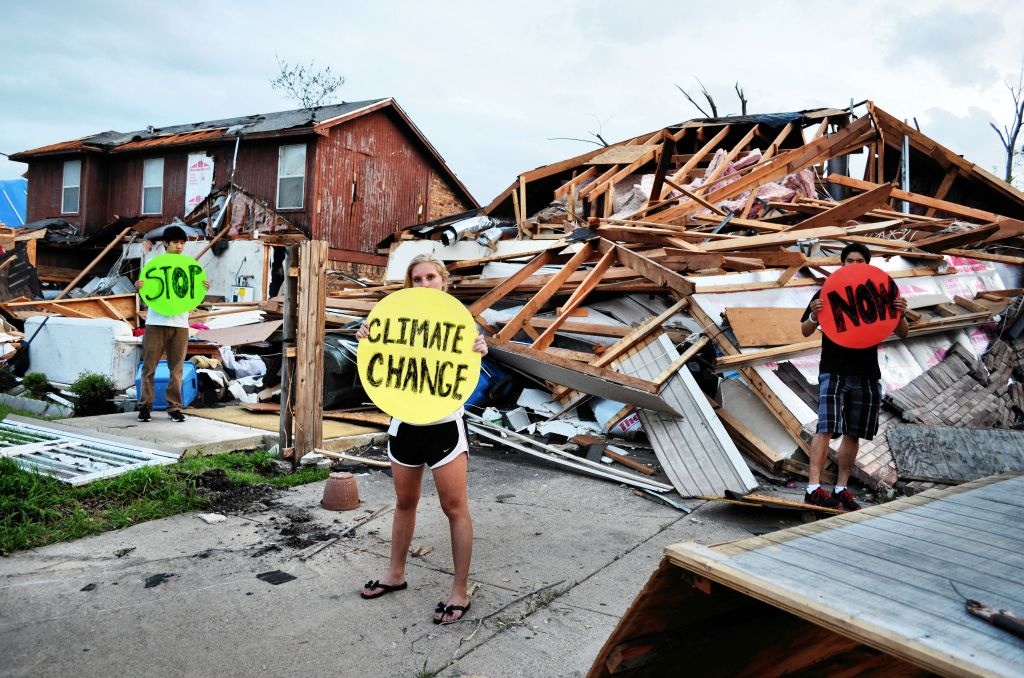 Bill McKibben. Photo: Nancie Battaglia
Bill McKibben. Photo: Nancie Battaglia
Editors Note: The following is from Issue 21.
His first book, The End of Nature, published in 1989, was one of the first books written for a general audience about global warming and has been translated into 24 languages. It was a wakeup call to avert the disastrous impacts of man-made climate change. It also set Bill McKibben on a path to becoming perhaps the most important environmental writer of our time. Yet, he told the Los Angeles Times in an interview earlier this year, when that book was first published, he and others thought climate change would not begin to manifest itself until 2080 or 2100. “What surprises me, always and forever, is just the speed with which things are happening,” says McKibben. “To see the planet unraveling before your eyes is shocking.”
A prolific writer and journalist, Bill McKibben has written more than a dozen books, such as the best sellers Eaarth and Deep Economy. His most recent book, Falter: Has the Human Game Begun to Play Itself Out?, is essentially a sequel to The End of Nature, recounting what has happened and why over the past 30 years as the climate crisis has worsened, such as how the extinction of species is accelerating and how the habitable planet in which we live is actually shrinking.
McKibben is a former staff writer for The New Yorker, and contributes regularly to Rolling Stone, National Geographic, The Nation and a wide range of other international media. He lives with his wife and daughter in a small town in Vermont near the Green Mountains and Adirondacks, where he is also an environmental studies professor at Middlebury College. In 2008, he co-founded along with several of his Middlebury students the environmental non-profit 350.org, which has had a major role in building a global climate movement through initiatives such as an annual International Day of Climate Action (October 24), a campaign to urge universities and other institutions to divest from the fossil fuel industry, and activism in the United States and worldwide to halt assorted oil pipeline and fracking schemes and push for stronger international climate change agreements.
In a November 2019 column for The Guardian, McKibben wrote that time was running out for humanity to get the climate crisis under control. “If we don’t solve it soon, we will never solve it, because we will pass a series of irrevocable tipping points – and we’re clearly now approaching those deadlines. You can tell because there’s half as much ice in the Arctic, and because forests catch fire with heartbreaking regularity and because we see record deluge. But the deadlines are not just impressionistic – they’re rooted in the latest science.” Here are excerpts from Patagon Journal executive editor Jimmy Langman’s interview with McKibben.
LANGMAN: It’s rare for a journalist or writer to also openly campaign as an environmentalist. What made you go down that path?
MCKIBBEN: I eventually came to understand that we were not in argument (we'd won that) but in a fight we were losing with the fossil fuel industry. Fights are about money and power, not data and reason--we had plenty of the latter, but to get the former we'd need to build a movement.
Do you think other environmental writers and journalists should take a stand on the issues they write about?
I'm bad at personal advice – it depends so much on where in a career one is, and what kind of writing one does, but I just find it temperamentally impossible not to take a stand once I've done the reporting to figure out what's going on.
Chile was originally supposed to host the recent COP25 UN climate change meeting, but had to cancel those plans due to social unrest over continuing economic inequality issues in the country. How will climate change also exacerbate inequality in Chile and other countries?
I was very sorry to hear about Chile. We need more of this discussion happening in the global south. The iron law of climate change is that those who did the least to cause it suffer first and hardest, so they should be well represented in the discussion.
.jpeg) Forward on Climate rally in Washington, D.C., in February 2013. Photo: Shadia Fayne Wood
Forward on Climate rally in Washington, D.C., in February 2013. Photo: Shadia Fayne WoodMany are saying the results at COP25 were actually a step backward. What needs to happen in the year ahead to get things back on track?
I think, as always, we need bigger movements that leave politicians no choice but to cooperate. And I think we need to remember that governments are not the only source of power. I got out of jail last night after helping organize a protest against the biggest bank in the world (JP Morgan Chase), which is also the biggest fossil fuel lender.
Thirty years after your first book, The End of Nature, was published, the world has only made incremental, insufficient progress in reigning in climate change. What can society learn from our mistakes and insufficient actions in tackling climate change up to now?
That individual action is not sufficient. The most important thing an individual can do is join with others to build the kind of movements sufficient enough to change the basic economic and political ground rules.
The End of Nature also conveys that human society has crossed the line; we have set in motion the greenhouse effect and there is no place on planet Earth that has not escaped our pollution. We have effectively killed true wildness. How did coming to that realization affect you?
You're right, the dominant emotion in that book was not fear but sadness. I think I was able to see it early and clearly because I have lived my life in the wilderness, and loved the wilderness, and so the idea that it wasn't really wild in the same way anymore struck me very, very hard.
Your new book, Falter: Has the Human Game Begun to Play Itself Out? explains in great detail how and why the very survival of humanity is at risk. Who are the key actors responsible for our predicament?
The fossil fuel industry and all their enablers. And, at root, the ideologues convinced that the only goal of human existence is accumulation.
Your book also warns about threats from artificial intelligence and gene editing, why did you include that?
Because they feel to me the way that climate change felt three decades ago – dangers on the horizon that are not yet fully realized. One hopes that this time we can address them before they are in full flower.
 High school students hold dots in Lancaster, Texas where tornadoes wrecked the town. Research shows that climate change may increase conditions that lead to tornadoes. Photo: 350.org
High school students hold dots in Lancaster, Texas where tornadoes wrecked the town. Research shows that climate change may increase conditions that lead to tornadoes. Photo: 350.orgYou’re somewhat hopeful in the book that we can control our destiny, and mention solar panels and non-violence as two key ways to turn things around.
I think the two great technologies of the 20th century were solar panels and nonviolent social movements. The first is almost self-explanatory – it's how we're going to have to provide power if we're going to live on this planet. The second will be key to getting there: non-violent big movements, the invention of Gandhi and Dr. Martin Luther King and so many others on society's margins, are a technology that lets the small and many stand up to the mighty and the few.
Your organization 350.org has carried out several citizen actions, including a divestment movement in the fossil fuels industry.
So far, endowments and portfolios worth $12 trillion have divested. Shell Oil last year called the movement a material risk to its business, which is good since its business is a material risk to the planet.
What could the world’s energy and transportation systems look like 30 years into the future if societies move away from fossil fuels?
More localized, more democratic, and with less cash flowing out to the few places on Earth with big deposits of hydrocarbons.
Is a Green New Deal, a massive investment in environmental projects on a national and global scale, what’s really needed to address the climate emergency?
Sure. The key is, whatever we do it has to solve the problem at the scale which it now exists. There's no point any longer in modest half measures.
Recent reports estimate that more than a billion species have perished in the current bush fires of Australia. The record heat and drought Australia has experienced this year is believed to be the main trigger and is linked to climate change. Such hellish events can make one despair about humanity’s future. Are we headed for more of these events?
We are definitely headed for many more of them, and they crush me – the idea that we are watching species go extinct on a weekly basis is soul-destroying. But I am uplifted by the fact that a big diverse movement grows daily around the world. Clearly this is why we are here right now, to try and slow down the most dangerous thing that ever happened.
Read more about the climate emergency in Issue 21.





.gif)



